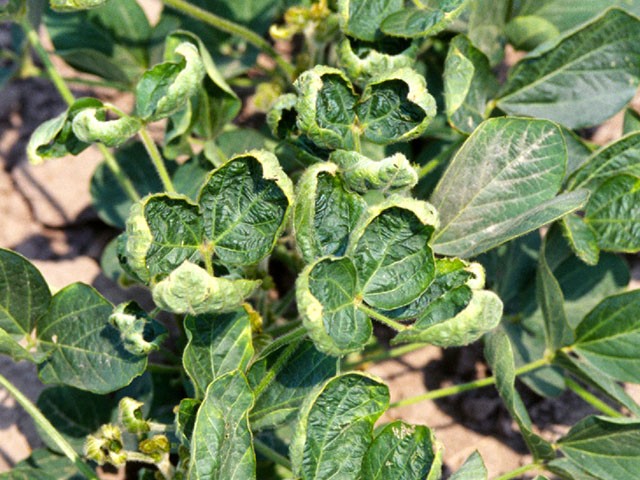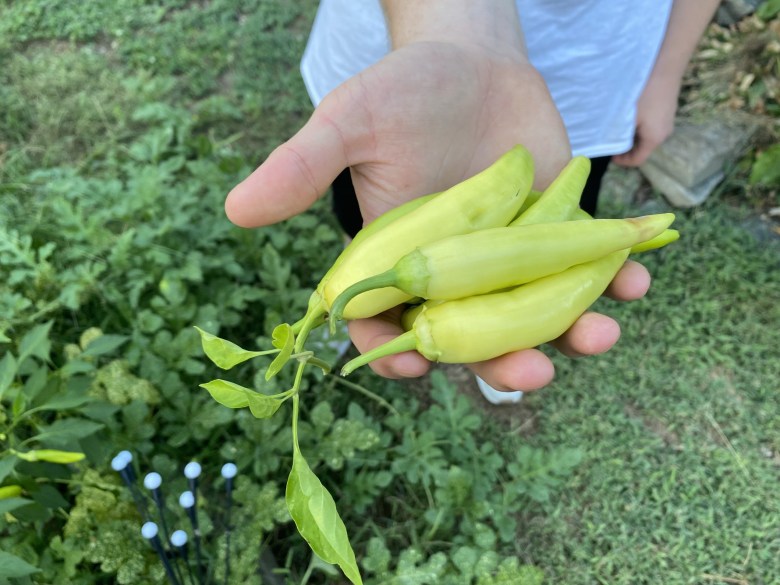It appears that the Environmental Protection Agency under President Trump will once more permit the widespread use of a contentious weed killer that has sparked animosity amongst neighbors in the Arkansas Delta.
Although dicamba has been used in the United States since the 1970s, it wasn’t until the 2010s that it was applied topically to cotton and soybeans that had already sprouted.
Due of the chemical’s tendency to float across nearby fields and wither any plant that wasn’t genetically modified to be resistant, the technique caused controversy in farm country, particularly in the Arkansas Delta. Naturalists who wanted to preserve the nearby woods, prairies, and wildlife also voiced their displeasure, in addition to other farmers whose crops suffered. The Arkansas State Plant Board received thousands of complaints about dicamba’s alleged improper or unlawful use.
The use of dicamba has decreased recently due to court challenges. For the 2025 season, a recent federal court ruling out of Arizona completely prohibited the sale and usage of excessive dicamba products.
Now, dicamba clouds could soon float across property lines in Arkansas and elsewhere due to the Trump administration’s more lenient and corporate-friendly EPA. Bayer, Syngenta, BASF, and other chemical corporations are attempting to regain the approval of federal environmental authorities for their excessive dicamba products.
In 2026, the businesses want to launch a new dicamba product that they claim is safer than the one that was previously available.
Additionally, the EPA stated in a public document endorsing the application that it advises regulators to accept the new items. Public comments on the proposal are being accepted by the agency through August 22.
As dicamba is expected to return to agricultural areas, opponents of the herbicide understand that their battle to remove the chemical from the market will be more difficult this time. As use spreads, dicamba is expected to continue harming non-resistant crops and plants because federal authorities can approve the herbicide more quickly than lawsuits can move to halt it.
Challengers, supporters line up
In the event that the pesticide is allowed, national environmental and sustainable agricultural organizations such as the Center for Biological Diversity, National Family Farm Coalition, Center for Food Safety, and Pesticide Action Network are prepared to contest it once more.
However, opinions on the future of dicamba are still mixed among farmers in Arkansas and elsewhere. With 190,000 member families, the Arkansas Farm Bureau is one of the biggest trade associations for farmers in the state yet has not even had an opinion on the contentious chemical.
According to an organization spokeswoman, the Farm Bureau’s state policy committee probably didn’t want to stir up trouble by not taking a stance on the product. The representative only mentioned two policies in which the group advises researchers to give priority to tackling herbicide volatility, such as dicamba, and supporting the reduction of dicamba demand through the purchase of new seeds and herbicides. The representative added that no attempts were being made to revise the dicamba usage policy.
Given that Arkansas had some of the most successful state prohibitions on dicamba at one point and was seen as the epicenter of the chemical’s catastrophic growth in the 2010s, this neutrality is a little surprising.
According to a 2019 University of Missouri study, 900,000 acres of soybeans were damaged or lost during the 2017 season, making Arkansas the state with the most crop loss from dicamba. To put it in perspective, Delta farmers cultivate about 3 million acres of soybeans annually.
Then there was the notorious case of Curtis Jones, a farmhand, being found guilty of killing Mike Wallace, an Arkansas farmer, following a disagreement over dicamba damage to Wallace’s fields. Thousands attended Wallace’s burial, which sparked a nationwide conversation about how the product was inciting farmers to turn against one another.
This time, the anti-dicamba crowd faces a more formidable foe. The South and Midwest are now dominated by dicamba-resistant crops, some ten years after over-the-top dicamba was brought to the Delta. An area almost the size of Alabama, or 65 million acres of crops in the United States, are estimated by the EPA to be resistant to dicamba, allowing farmers to apply the pesticide without endangering their harvest. Three-fourths of cotton and two-thirds of soybeans farmed in the Midwest and South are examples of these dicamba-resistant crops.
Nonetheless, some Arkansans are prepared to continue opposing the herbicide’s broader use and to attempt to hold the businesses who manufacture it responsible for any harm caused.
Chased away by dicamba
Coy’s Honey Farm, an Arkansas family beekeeping business, was founded in Memphis in the 1960s by Richard Coy’s grandfather. Coy would collaborate with farmers to set up beehives in eastern Arkansas counties to aid with pollination. Coy began working for the company full-time in 1991 after his father relocated it to Jonesboro in the 1980s.
Coy’s beekeeping company was instantly impacted in 2016 when dicamba was released over cotton and soybean crops in the Delta.
According to Coy, dicamba would harm a lot of the wild plants that our bees depended on to generate a honey harvest and increase their numbers in the hive, causing them to produce less nectar and pollen. Both nectar and pollen are necessary for beehives to live since nectar is a source of carbohydrates and pollen is a source of protein. Therefore, food—natural food—is necessary for the beehive to grow. There wouldn’t be enough bees in the hive to generate enough honey for me to harvest in the summer if there weren’t a healthy population.
In the winter of 2019, after suffering significant financial losses from 2016 to 2019, Coy moved his company to the Mississippi Gulf Coast. His company now primarily raises his bees in South Mississippi before transporting the hives to fields around the nation to aid in pollination.
In a tiny region of northeast Arkansas where many acres of dicamba-resistant seed were sown, I saw a decrease in honey output in 2016, Coy said. I had no idea what it was at the time. However, as the use became legal and more common in 2017, I began researching it and discovered that plants exposed to just 1% of the application rate had a 50% decrease in pollinator visits. Additionally, my output statistics indicated that I produced less in places where dicamba consumption was high.
referenced a 2015 study conducted by experts at Pennsylvania State University that demonstrated these relationships between dicamba and pollinators. That evidence was expanded upon in a more recent study conducted by the University of Michigan and the University of Pittsburgh.
It only took Dicamban two years to ruin the company we had spent forty years creating. According to Coy, the entire family was upended when we all had to leave home to continue our business.
Coy stated that it is practically hard for regulators to solve the issue, even though the EPA is suggesting restrictions on the use of dicamba throughout the summer based on temperature. The EPA used to stop dicamba spraying after a specific date when temperatures started to rise, but they are currently experimenting with the new temperature restriction. Are they going to work? It was widely reported even in previous years that farmers were using the pesticide illegally because they would rather pay a fee than lose their crops.
However, Coy had no intention of taking his displacement lightly. He hired Richard Mays, an environmental lawyer from Arkansas and a former EPA attorney, to sue Bayer and BASF for financial losses to his company.
We demand damages, and trust me when I say that the chemical firms we are suing have already given farmers who suffered crop damage from these dicamba pesticides a sizable payout, Mays said. This may be the first bee case we ve had, but it just makes it another link in the chain that we will have to prove that dicamba didn t harm the bees directly, but it did remove their food source, and any organism that can t get food is going to die. Coy’s hives experienced that. We therefore request monetary damages.
Coy s lawsuit is now part of a multidistrict case with other plaintiffs across the South and Midwest suing Bayer and BASF for damages related to their dicamba products. The federal case is in the Eastern District of Arkansas before Judge Kristine Baker.
Mays said he will likely request upwards of $10 million in damages. He took inspiration fromthe landmark Bader peach farm case where farmers won millions in damagesfrom Bayer and BASF.
A courtroom win would be great for Coy, but would do little to mitigate damage for other farmers.
In the particular case of dicamba, a court has twice revoked the product’s registrations. According to Brigit Rollins, a legal scholar who studies the relationship between agriculture and environmental law, “we are in this place where the law is written, the framework is set up, just as plaintiffs are within their rights to file lawsuits, the manufacturers are within their rights to reapply for product approval.” Rollins is a staff attorney at the National Agricultural Law Center, where she has compiled legal research on dicamba.
Rollins said that under the current law, companies will always have opportunities to tweak their product applications to get dicamba reapproved time and time again, faster than courts can remove any products from the market for not following the proper regulatory process.
Ford Baldwin, a weed scientist who has spent a significant portion of his career fighting dicamba and currently consults with Riceland Foods after working as an academic at the University of Arkansas, stated that he will not waste any more time submitting a public comment to the EPA in opposition to the impending reauthorization of over-the-top spraying. His opinion is that the EPA s decision will be based not on the science, but on the politics. After all these years, he s come to the cynical conclusion that regulators are listening to industry lobbyists, and any comment based on scientific evidence will be ignored. To Baldwin s point, Trump selected agriculture industry lobbyist Kyle Kunkler to oversee pesticide policy within the EPA.
Rollins said that for environmentalists, only an act of Congress could get dicamba off the market at this point. With how partisan and deadlocked the institution has become, that doesn t seem likely.
Beekeeper Coy also said he won t get his hopes up.
I had a motto I started saying in 2018 and it has proven true and it goes like this: As long as dicamba-tolerant seeds are planted in the ground, dicamba will be floating all around, he said. Until the seed technology is removed from the market, dicamba will be applied in copious amounts. Roundup was brought on to the market in the 1990s and was used until the Liberty system came on to the market because weeds were becoming resistant to Roundup. But those two products stayed where you spray them and farmers could grow what they wanted to grow. But all that stuff became less effective, and dicamba came on. How do we stop the problem? You take the seed technology out of the market, and I don t think that will ever happen.
It’s dragon-slaying time!
In a time when critical voices are increasingly silenced, theArkansas Timesstands as a beacon of truth, tirelessly defending the fundamental rights and freedoms within our community. With Arkansas at the epicenter of a sweeping culture war affecting our libraries, schools, and public discourse, our mission to deliver unflinching journalism has never been more vital. We re here to slay dragons and hold power accountable, but we can t do it alone. By contributing today, you ensure that independent journalism not only survives but thrives in Arkansas. Together, we can make a difference join the fight.







